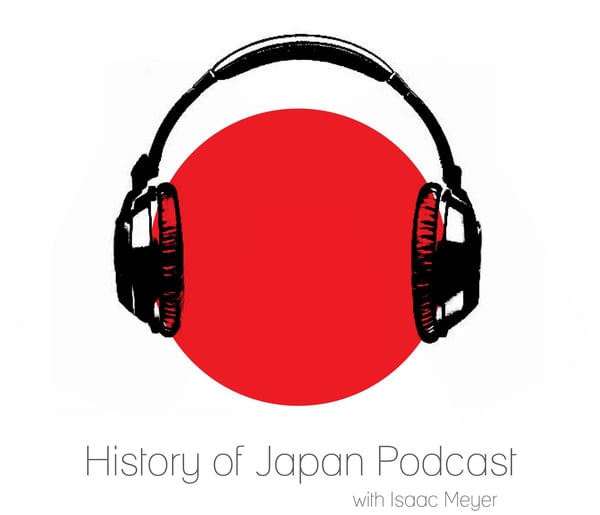Episode 462 - The Empty Throne, Part 5
History of Japan
Isaac Meyer
4.8 • 744 Ratings
🗓️ 18 November 2022
⏱️ 38 minutes
🧾️ Download transcript
Summary
This week, we wrap up our imperial biographies with a look at the Meiji Emperor's relationship to three important aspects of his reign: the constitution, the wars fought in his name, and his heir. Plus, we talk Meiji's death, and his legacy.
Note: no episode next week for American Thanksgiving; show notes here.
Transcript
Click on a timestamp to play from that location
| 0:00.0 | Hello and welcome to the History of Japan podcast, episode 462, The Empty Throne, Part 5. |
| 0:24.5 | Before we get into it, today I want to wrap up our time with the Meiji Emperor by focusing |
| 0:29.8 | on a couple of key themes of his later years. We've been going fairly chronologically up until |
| 0:35.2 | this point, but from this time onward, a chronological approach to Meiji's life gets a bit less interesting, given the increasingly formulaic nature of Meiji government once things start to get figured out, so to speak. |
| 0:48.3 | So in the interests of time and, well, interest, we're going to shift gears a bit here. |
| 0:57.5 | First, let's talk about the Constitution. |
| 1:03.4 | By the 1880s, it was common wisdom within the country that Japan needed a Constitution. |
| 1:09.9 | After all, the driving force of the age was Japan being accepted as an equal of Western powers, |
| 1:12.1 | and part of that, part of the project of appearing civilized, was constitutional government. |
| 1:17.8 | Constitution study societies had cropped up around the country. We talked about one famous |
| 1:21.5 | example, the Itskai-chi study group, back in our episodes on the Freedom and People's |
| 1:25.9 | Rights Movement. Even the Emperor was getting in on the action. |
| 1:30.3 | Starting from shortly after the Meiji Restoration itself, |
| 1:33.3 | his education had come to include a great deal on Western constitutional history and law. |
| 1:38.3 | But agreeing that constitutions were necessary was one thing. |
| 1:43.3 | Agreeing what they should look like was quite another. |
| 1:46.5 | After all, there were many ways that could go. Hell, North Korea technically has a constitution, |
| 1:51.5 | and functional and effective government are probably not the first words that come to mind when you think of that country. |
| 1:58.7 | So what would Japan's constitution look like? That was the real question and it was |
| 2:03.9 | far more divisive. On the one hand, you had liberals like Okma Shigenobu, most of whom had by this |
| 2:11.7 | point been forced out of government, but they still had a lot of influence thanks to their |
| 2:15.4 | large followings, particularly among Japan's |
... |
Please login to see the full transcript.
Disclaimer: The podcast and artwork embedded on this page are from Isaac Meyer, and are the property of its owner and not affiliated with or endorsed by Tapesearch.
Generated transcripts are the property of Isaac Meyer and are distributed freely under the Fair Use doctrine. Transcripts generated by Tapesearch are not guaranteed to be accurate.
Copyright © Tapesearch 2025.

